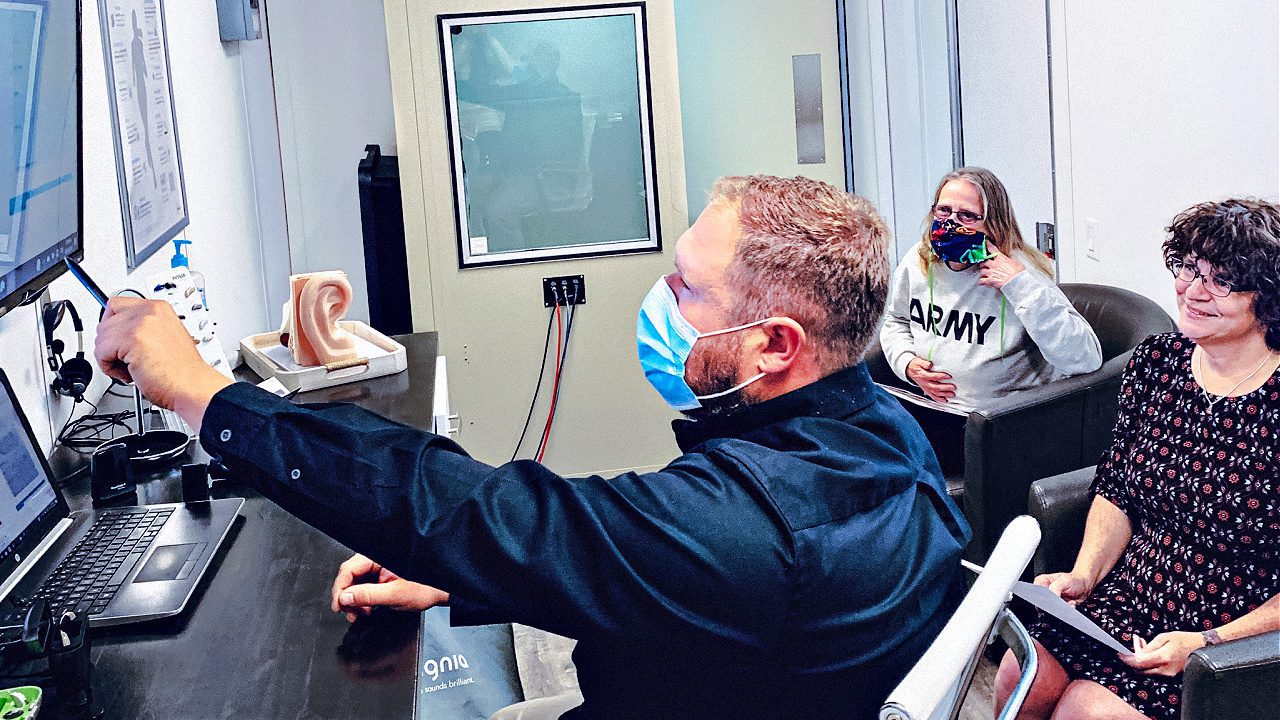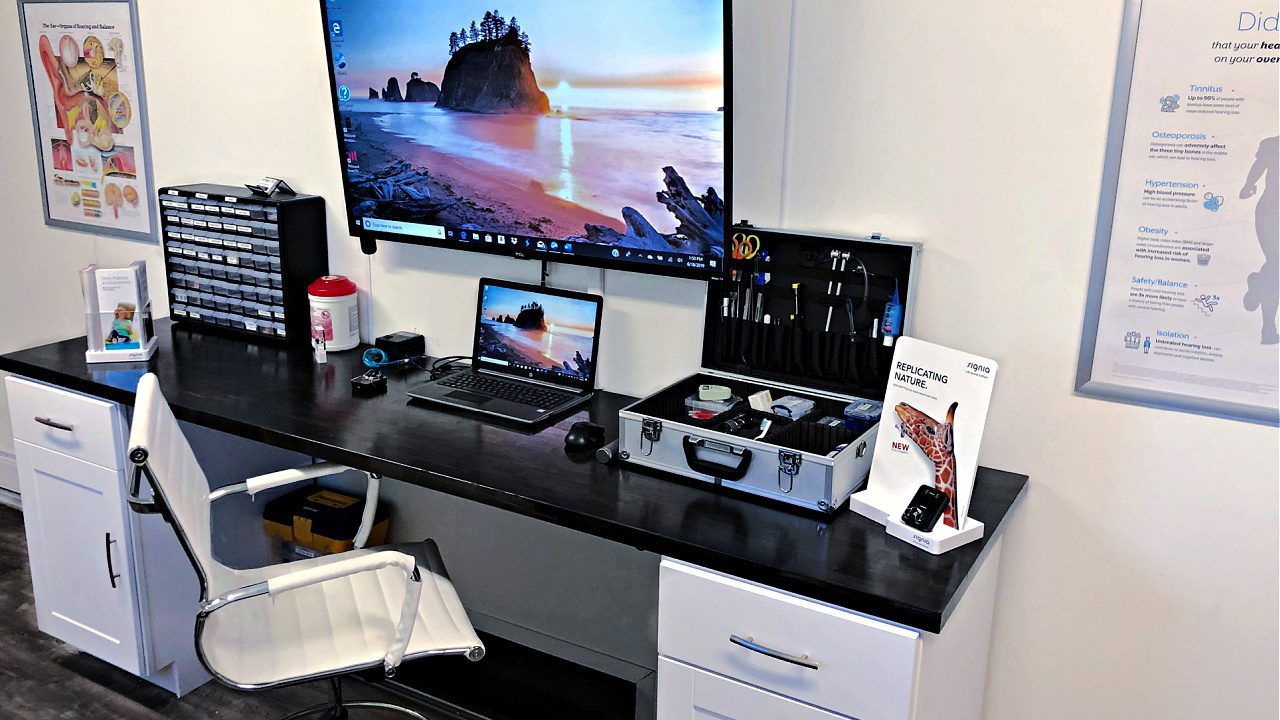OCCUPATIONAL EXAMINATIONS
Exposure to loud noise can kill nerve endings in the inner ear. The more harmful noise employees are exposed to, the higher their risk of having large numbers of dead nerve endings and permanent hearing loss.
Aside from limiting employees’ ability to hear high-frequency sounds and understand speech, noise-induced hearing loss seriously impairs their communication ability. In addition, studies have shown that prolonged noise exposure can contribute to other health issues such as hypertension, high cholesterol, diabetes, and poor sleep at night.
The following are a few auditory symptoms your team members should look out for:
-
They are hearing ringing or humming in their ears when they leave work.
-
They must be shouted at to hear a coworker an arm’s length away.
-
They experience temporary hearing loss when leaving work.
We take pride in offering comprehensive and affordable occupational exams. We understand the importance of accurate and reliable testing in maintaining a safe and healthy work environment. With our commitment to excellence and affordability, we aim to make occupational testing accessible to businesses of all sizes. Our knowledgeable specialists are equipped with the expertise and resources to ensure accurate assessments and prompt results, enabling you to prioritize the well-being of your workforce.
We are pleased to announce that our occupational exams are available at the competitive price of $35 per test. Whether you visit one of our offices in Weiser or Emmett or require our specialist to visit your location, we strove to provide exceptional service at affordable rates.
For those who prefer or need the test conducted at their premises, we offer on-site testing, with a fee of $150 per location, in addition to the base test pricing.
Contact us today to schedule your occupational exams or to inquire further about our services. We look forward to partnering with you in maintaining a safe and health work environment.
1. Good hearing leads to higher productivity
Almost no employer will turn down the chance to have a more productive workforce. But the fact is that by neglecting the hearing health of their workers, employers are risking more than the wellbeing of certain staff members. They could also risk lowering productivity.
Hearing and understanding one’s colleagues is essential for efficient employee communication. Maintenance of your employee’s hearing and listening abilities allows employees to understand instructions for work, making it more likely that your employees get more done. Misunderstandings can lead to job errors, missed deadlines, and inadequate customer service.
2. Good hearing leads to a lower risk of accidents
The more developed your hearing loss is, the bigger the risk is that you will experience a workplace accident. This risk rises significantly if you already work in a noisy environment. You might miss crucial security information during work at a construction site which could lead to severe consequences. Hearing loss can also conceal sounds which alert you to that, such as the warning sounds of reversing vehicles. The cognitive effort involved in distinguishing sounds when battling hearing loss makes you more vulnerable to workplace errors.
Maintaining your workers’ hearing will help ensure a clean safety record at work, preserving your company’s reputation and reducing the chances of any lawsuits resulting from accidents at work.
3. Protecting your employees hearing is easier than you think
While there are certain things you can do to avoid damaging your ears, such as not standing next to a loudspeaker at a concert or turning your music down, sometimes certain situations are unavoidable.
Whether you’re a motorcycle rider or a truck driver 12 hours a day, there are several options for hearing protection that doesn’t require you to switch your occupation or change your lifestyle habits.
It all comes down to doing your research, and you can find everything you need to know about hearing protection below.
Learn about the different types of hearing protection here.
VIEW OUR STATE OF THE ART MOBILE UNIT



Comprehensive Hearing Assessments
If you or a loved one think you may be suffering from hearing difficulties, schedule a hearing assessment, and we can work together to see what can be done to help.
Scheduling your comprehensive hearing assessment is the vital first step toward regaining the rewarding, independent lifestyle you are missing due to hearing loss.
